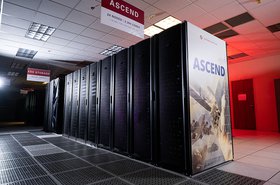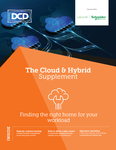T-Systems and Alpine Quantum Technologies (AQT) are partnering to give T-System's Quantum Cloud customers access to AQT's quantum computers.
AQT's computers are integrated into the T-Systems' multi-quantum cloud offering, and thus far successful test runs have been conducted.
AQT's systems are ion trap-based quantum computers, a method where a linear chain of ions is confined through electric potential using direct current and radio-frequency fields, thus making qubits. The method can be run at room temperature, though the ions themselves need to be laser-cooled to a near-ground state.
AQT has thus far achieved a quantum volume of 128 and the system can be housed directly in a standard 19-inch rack cabinet.
The quantum computers will be available through computing time-based models and volume packages ranging from one-day introductions to multi-month proofs-of-concept.
Jörn Kellermann, SVP global portfolio and technology excellence at T-Systems, said: “We identified quantum computing early on as a critical key technology for the future. The first customers are already live on the T-Systems Quantum Cloud and the cooperation with AQT expands their possibilities – on a sovereign, European infrastructure.”
Thomas Monz, CEO and founder of AQT, says: “Together with T-Systems, we offer our customers hands-on access to the best quantum computers in Europe. We are convinced that the synergy between our quantum computers and T-Systems’ cloud infrastructure will open up completely new capabilities and markets for Europe.”
AQT is a spin-off of the University of Innsbruck and the Austrian Academy of Sciences. The company has been able to make its quantum computers available via the cloud with the help of the EIC (European Innovation Council) and the QCDC project (Quantum Computers for Data Centers).
T-Systems is an IT and digital transformation service provider and part of Deutsche Telekom. Deutsche Telekom was considering selling T-Systems in 2022, but ultimately shelved the plans after negotiations fell through in September 2022. The sale was partially motivated by T-System's poor performance, with the company having to reduce its data center portfolio from 89 to 13 in 2019.







